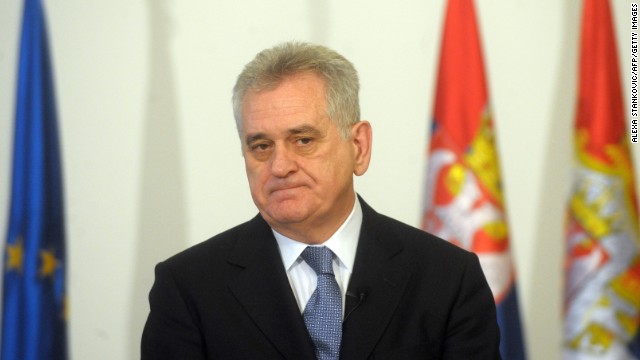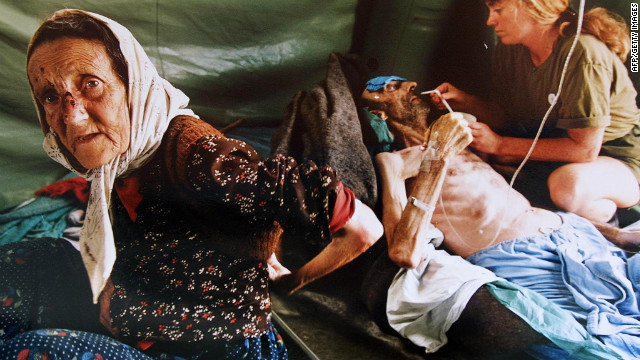Serbia's president apologized Thursday for the 1995 massacre of 8,000 Muslims in the Bosnian town of Srebrenica, but declined to characterize the killings as an act of genocide.

"I kneel and ask for forgiveness," President Tomislav Nikolic told Bosnian TV. "I apologize for the crimes committed by any person in the name of Serbia."
Nikolic came under fire last year short after he was elected by declaring, according to published reports, there was no "genocide" in Srebrenica.
He has since been urged by Bosnian leaders to acknowledge the killings, which the prosecutors at the International Criminal Tribunal for the former Yugoslavia have described as a systematic extermination

Serbian president Tomislav Nikolic is pictured in Belgrade on January 16, 2012
Over a period of five days in July 1995, the Bosnian Serb army conducted a brutal takeover of the town. About 8,000 men and boys were rounded up and killed, with many buried in mass graves.
At the time of the massacre, Srebrenica had been designated a U.N. "safe area" for people, predominantly Bosnian Muslims, trying to escape the advancing Bosnian Serb army.
The people of Srebrenica, which sits a short distance from the Serbian border, were protected by just 100 lightly equipped Dutch peacekeepers. Without reinforcements, the Dutch were forced to stand aside while Serb troops took the town.


An elderly woman and her husband are treated for injuries inflicted by Serb military forces as they fled Srebrenica in July 1995
Then-Bosnian Serb commander-in-chief Gen. Ratko Mladic -- now on trial on charges of war crimes and crimes against humanity -- allegedly told one woman everyone taken out of Srebrenica would be reunited with their loved ones, according to Serbian TV footage previously shown in court.
Truckloads of men and boys were taken from Srebrenica to execution sites where they were bound, blindfolded, and shot with automatic rifles, prosecutors contend.
In the aftermath of the massacre, the United Nations gave NATO the authority to launch large-scale airstrikes against Serb targets, a move that eventually forced the Serbs to the negotiating table.
Journalist Matthew Day contributed to this report.
No comments:
Post a Comment